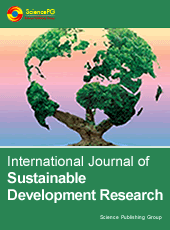
Using Synergic Methods for Being Methodologically Agile (SM4BMA)
Author(s): van Breda, J.Link to CST author(s): Dr. John van Breda
Publication: International Journal of Sustainable Development Research
Year: 2022
Full reference: John Van Breda. Using Synergic Methods for Being Methodologically Agile (SM4BMA). International Journal of Sustainable Development Research. Vol. 8, No. 2, 2022, pp. 52-65. doi: 10.11648/j.ijsdr.20220802.14
Download publication
Summary
Methodological agility refers to a new meta-level research strategy of switching between mono-, multi-, inter- and trans-disciplinarity when facing the global societal challenges in the context of the Anthropocene today. When imagined in complexity terms as a polycrisis – consisting of multiple interconnected planetary crises – the Anthropocene cannot be approached in terms of any one of the said four methodologies only. This is so for two important reasons: firstly, there is not just one dominant crisis to which all the other crises can be reduced, and, secondly, not all the planetary crises we are facing today are necessarily complex problems. Some challenges are indeed complex; others complicated; still others chaotic. As a caveat, this new research strategy of methodological agility employs the construct of synergic methods, which is related to but different from synergistic or using methods synergistically in the mixed methods sense of the word when referring to the practice of using many different methods reciprocally. Herein, synergic is taken to mean a one-to-many relationship of using single methods for achieving multiple epistemological ends simultaneously. By combining some of the main features of action research and narrative theory, narrative action research (NAR) is presented in this paper as an example of how a particular synergic method can be used in transformative transdisciplinary processes (TTDR) for co-producing systems, target, and transformation knowledge – epistemologically speaking three very different kinds of knowledge each with their own (internal) logics, principles, practices, and research questions (epistemic objects).

